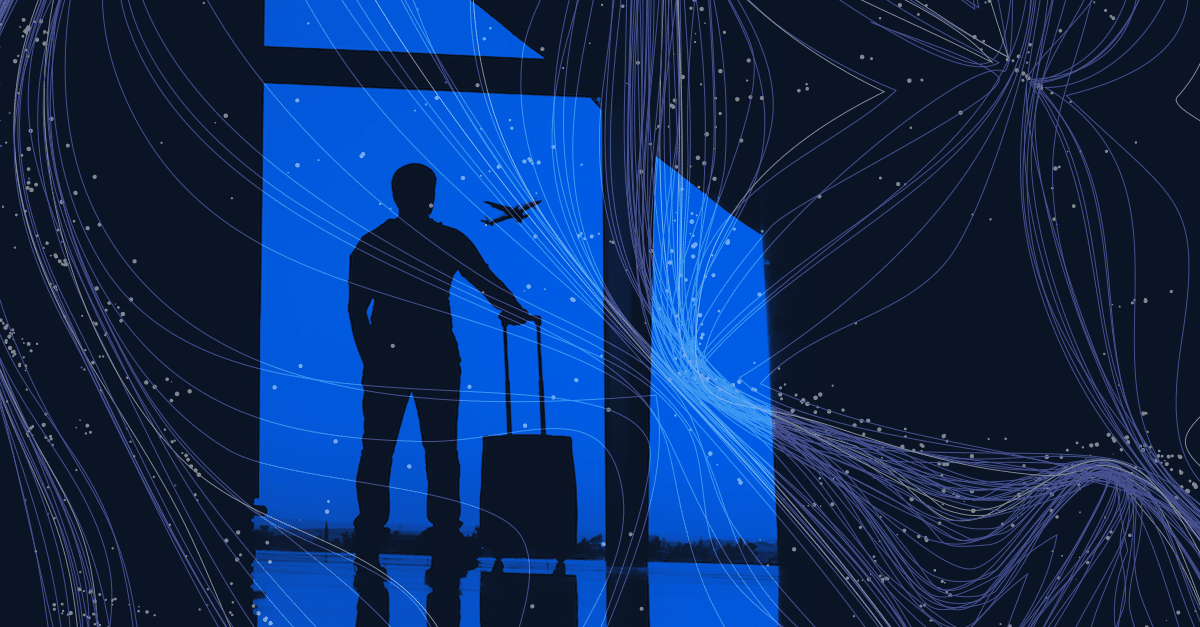By Doriel Abrahams, Head of Risk, U.S.
As pandemic-related restrictions continue to subside, travel is surging across the United States. The 2023 Memorial Day weekend was the third-busiest since 2000 — and overall, both interstate and air travel are up over 10% year-over-year. If it holds, the 11% increase in air travel would also make it the busiest year for airports since 2005.
“We are expecting 2023 to be the busiest travel year of all time. The indicators are that we may break every record that we’ve had pre-pandemic or any time. So it’s going to be a busy travel year for sure,” said Clay Ingram, Public Relations & Marketing Director for the American Automobile Association (AAA).
Whenever an industry shows signs of booming, there’s one thing you can count on: Fraudsters will be in on the game. This time, however, it’s even more than usual.
Fraudsters Follow the Pack
Fraudsters steal for profit, not for fun. That means they go after goods they know they can resell easily; if they can’t monetize their theft, all the hard work they put into stealing has gone to waste.
If a consumer trend pops up, fraudsters suddenly get interested. Retailers know that their hottest products are constantly under threat. The larger the audience for the item, the more attractive it is to fraudsters because there’s also a broad audience for reselling.
Fraudsters usually resell at a discount, so their deals are particularly desirable; they can afford to make it that way because they aren’t paying for the goods in the first place. Consumers looking for a bargain on a popular item will likely come across a fraudster who’s set up shop to resell stolen goods.
Broadly speaking, fraud attacks roughly match the demand for products. So when demand increases, fraud attacks do, too — meaning that the fraud rate stays about the same. It’s roughly the same percentage of overall sales as before; sales increased, and fraud attacks increased about the same amount. That’s what usually happens. Only this summer, travel is an exception.
Travel Gets Extra Fraudster Love
Travel is being attacked at about double the fraud rate compared to typical trends during the rest of the year. Fraudsters are going to town (or the beach or vacation destination of choice).
It’s highly unlikely that this trend is here to stay in the long term. Instead, it’s probably a result of three temporary factors:
- Despite economic uncertainty, travel is particularly popular this spring/summer because people who were cautious in recent years due to pandemic concerns are determined to enjoy themselves. That means fraudsters have an excellent cover for their fraud — hiding in a crowd is more effortless.
- Fraudsters also have a ready resell market — even more so than usual — because the economic uncertainty drives consumers to look for “one of a kind” travel deals, which fraudsters often offer. Fraudsters can afford to offer great prices since they never pay for anything with their own money.
- It’s a time-sensitive market. Unlike many hot physical goods, such as costly phones, gadgets, and luxury items, which can be purchased in bulk and then stockpiled by a fraudster, travel is something people look at during specific times of the year in any year, and which people are particularly interested in right now.
The good news about this is that it’s hopefully a temporary trend. The bad news is that it’s not over yet.
Travelers: Beware This Summer
Travel fraud is unusual because it is carried out through fake online travel agencies. Fraudsters set up what looks like a legitimate business, take bookings (and payments) from real customers, and then fulfill those bookings using stolen payment methods.
It’s a kind of fraud called triangulation, which is seen across many industries. Still, it’s especially prevalent in travel because this business model is also typical in the legitimate industry. Fraudsters often drive traffic to the site or social media page they’ve set up for the “business” using ads or posts on social media or messaging channels — just like a legitimate business.
All this can make it difficult for consumers to tell when they’ve encountered a fake. The site or page often looks professional, there’s usually good customer service, and the deals look attractive. In fact, they may look too good to be true, which is a crucial clue.
With high fraud attack rates against travel, consumers must take extra care when looking for deals online. It won’t matter how good the deal is if you arrive to discover that you don’t have a flight or accommodation booked — if, for example, the person whose payment details were fraudulently used to book it noticed what was happening and canceled. Similarly, if you’ve handed your details over to a fraudster, the chances are that they’re going to misuse them in time. It’s a cycle.
Online travel companies are noticing the rise in fraud attacks and fighting back. Consumers also need to protect themselves by being cautious about where they look for deals, watching out for signs that something might be wrong, and when in doubt, checking twice.
